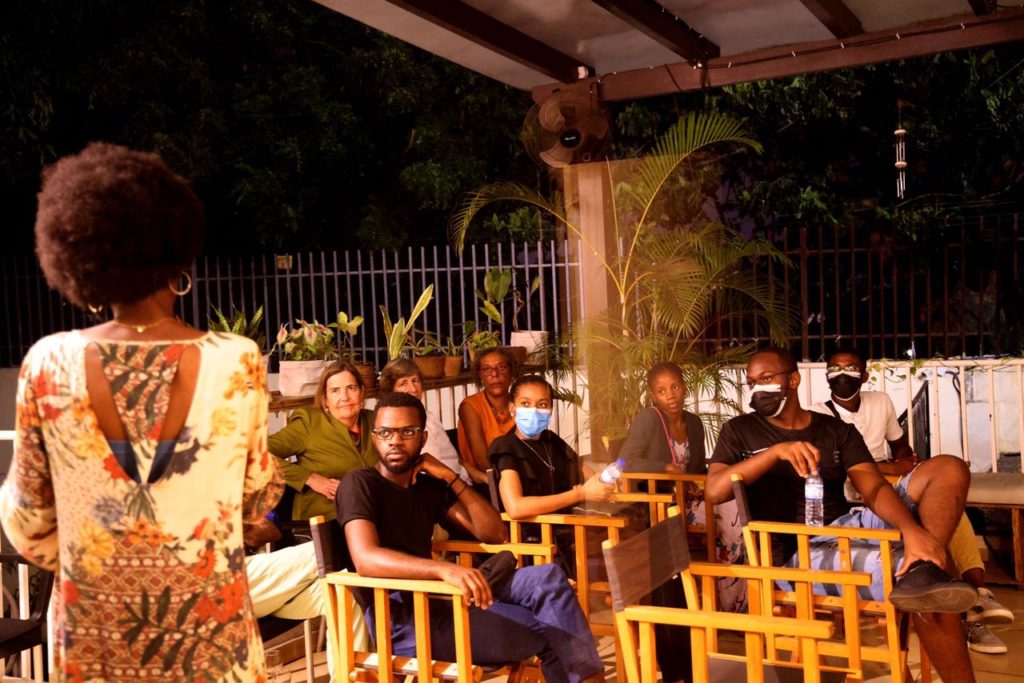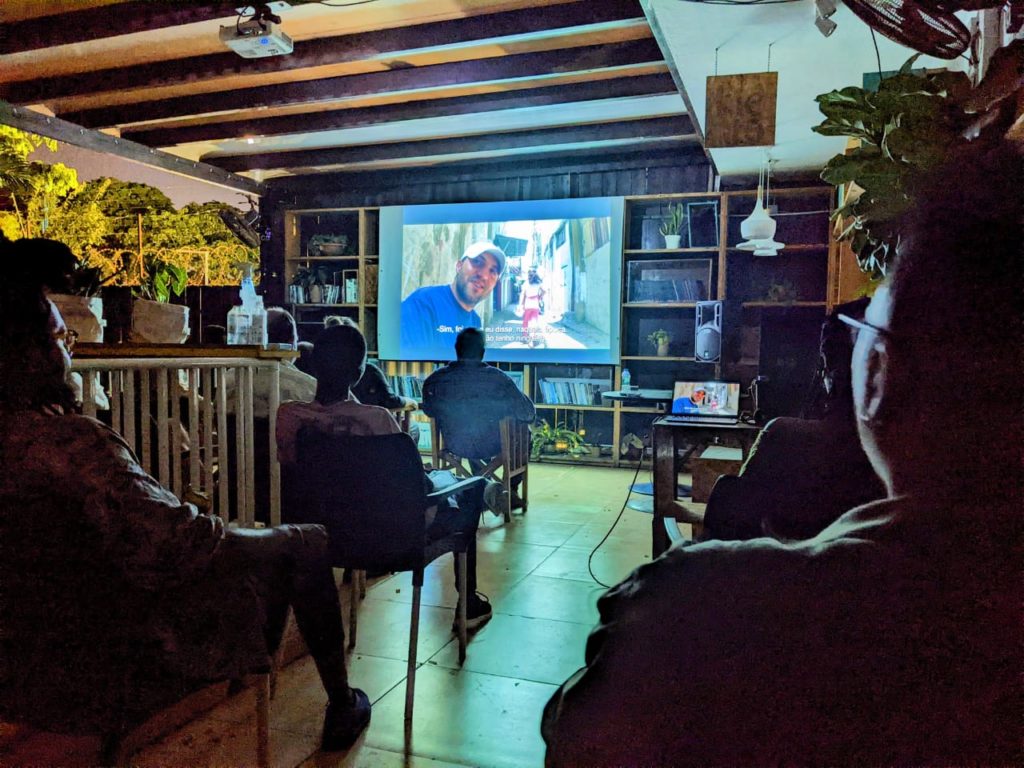How can we bring cinema to us and keep it alive?
Interview with Mirian Vanda, Cine Geração
 (Credit: Cine Geração)
(Credit: Cine Geração)
Introduce us to Cine Geração – how would you describe the project to someone who has never visited?
Cine Geração started during the pandemic and it has been growing ever since. It started during a period in which people didn’t have anywhere to go and most places were closed in Luanda. We then asked ourselves: how can we bring cinema to us and keep it alive? We realised that this could be done by simply inviting our co-workers and friends to watch films with us. The idea of using the backyard to showcase films was brought to life. Since then we have been screening Angolan and African films every Thursday.
Angolan film has always been closely tied to revolutionary politics and activism. How does the work you do at Cine Geração speak to this history of film as a political force?
What we do at Cine Geração challenges us to think about what we do as a cinema space and how we want to communicate cinema. We don’t just want to use films as a tool of entertainment but as a method of learning. Hosting screenings in our backyard for people to experience movies in an unconventional way while old cinemas have been abandoned, deteriorated and closed, is in itself an act of activism. This serves as a reminder and raises many questions regarding our government’s role, duties and responsibilities.
We have screened a good amount of films that highlight different social aspects that directly lead to politics. However, these films not only focus on that social aspect of the story, but they also centre the day-to-day characters we can all relate to. For us as well as for many people, Cine Geração is a platform that brings light to the work of independent filmmakers that showcase different types of films, since it would be difficult to access these films on public television.
Equally important for us are the conversations that we have after each screening session. Such discussions can be interpreted as a political force. It is where we get to share our ideas, to listen and to raise questions with regards to the context we operate in.
 (Credit: Cine Geração)
(Credit: Cine Geração)
Your programme is curated based on a monthly changing theme. How do you arrive at the themes each month? And can you give us an example of some of the themes you’ve used before that you thought were particularly effective?
Each month we select films based on a theme. Sometimes we choose a theme that has been inspired by our interactions with filmmakers and producers. In order to make the film selection more interesting, we also invite people to collaborate with us and co-shape the selection with us. This year we have explored various interesting themes, as we have screened many Angolan feature-length films as well as classical African films, celebrating the diversity and film heritage of Angolan and African cinema. We also did a programme on Angolan Women in Cinema in collaboration with filmmaker Renata Torres.
The films we screen at Cine Geração are exclusively made by African filmmakers, addressed to, or concerned with the motherland.
How, in your opinion, can viewing film communally create a space of solidarity and exchange?
Viewing film communally can create a space of solidarity and exchange by learning through our stories and humanising them. It is rare to watch African films in an African country, which makes it difficult to learn about our own film history and culture. Cine Geração has helped us all learn about our stories and most importantly about what is happening in African Cinema.
Mirian Vanda is a graduate from The Arts University Bournemouth with a BA in Architecture. She is particularly interested in exploring film as a way of understanding architecture and the role of architecture in shaping communities. She is currently based in Luanda, working as an assistant and film curator at Geração 80.